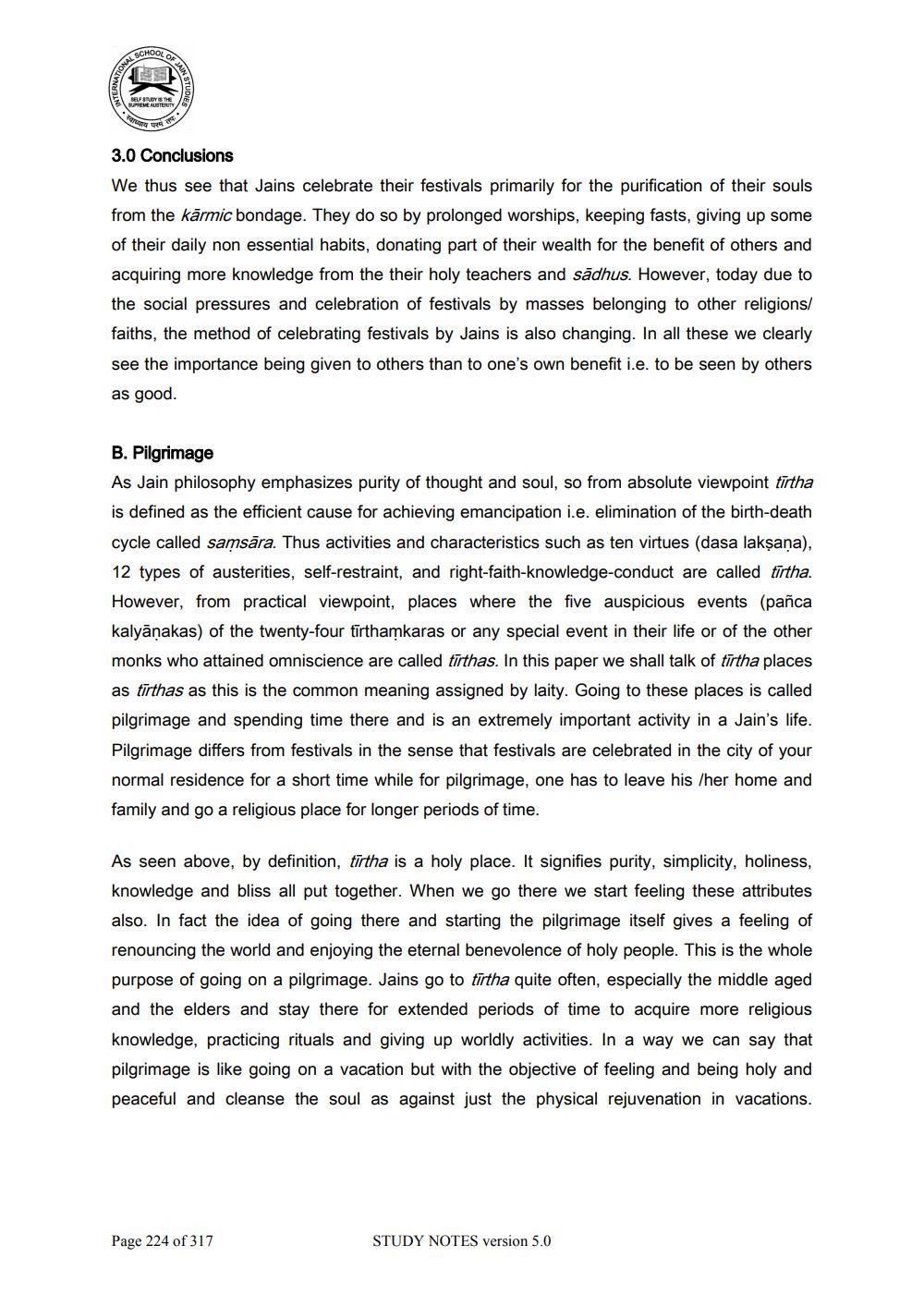________________
3.0 Conclusions We thus see that Jains celebrate their festivals primarily for the purification of their souls from the kārmic bondage. They do so by prolonged worships, keeping fasts, giving up some of their daily non essential habits, donating part of their wealth for the benefit of others and acquiring more knowledge from the their holy teachers and sādhus. However, today due to the social pressures and celebration of festivals by masses belonging to other religions/ faiths, the method of celebrating festivals by Jains is also changing. In all these we clearly see the importance being given to others than to one's own benefit i.e. to be seen by others as good.
B. Pilgrimage As Jain philosophy emphasizes purity of thought and soul, so from absolute viewpoint tirtha is defined as the efficient cause for achieving emancipation i.e. elimination of the birth-death cycle called samsāra. Thus activities and characteristics such as ten virtues (dasa laksana), 12 types of austerities, self-restraint, and right-faith-knowledge-conduct are called tirtha. However, from practical viewpoint, places where the five auspicious events (pañca kalyāņakas) of the twenty-four tīrthamkaras or any special event in their life or of the other monks who attained omniscience are called tīrthas. In this paper we shall talk of tīrtha places as tīrthas as this is the common meaning assigned by laity. Going to these places is called pilgrimage and spending time there and is an extremely important activity in a Jain's life. Pilgrimage differs from festivals in the sense that festivals are celebrated in the city of your normal residence for a short time while for pilgrimage, one has to leave his/her home and family and go a religious place for longer periods of time.
As seen above, by definition, tirtha is a holy place. It signifies purity, simplicity, holiness, knowledge and bliss all put together. When we go there we start feeling these attributes also. In fact the idea of going there and starting the pilgrimage itself gives a feeling of renouncing the world and enjoying the eternal benevolence of holy people. This is the whole purpose of going on a pilgrimage. Jains go to tirtha quite often, especially the middle aged and the elders and stay there for extended periods of time to acquire more religious knowledge, practicing rituals and giving up worldly activities. In a way we can say that pilgrimage is like going on a vacation but with the objective of feeling and being holy and peaceful and cleanse the soul as against just the physical rejuvenation in vacations.
Page 224 of 317
STUDY NOTES version 5.0




